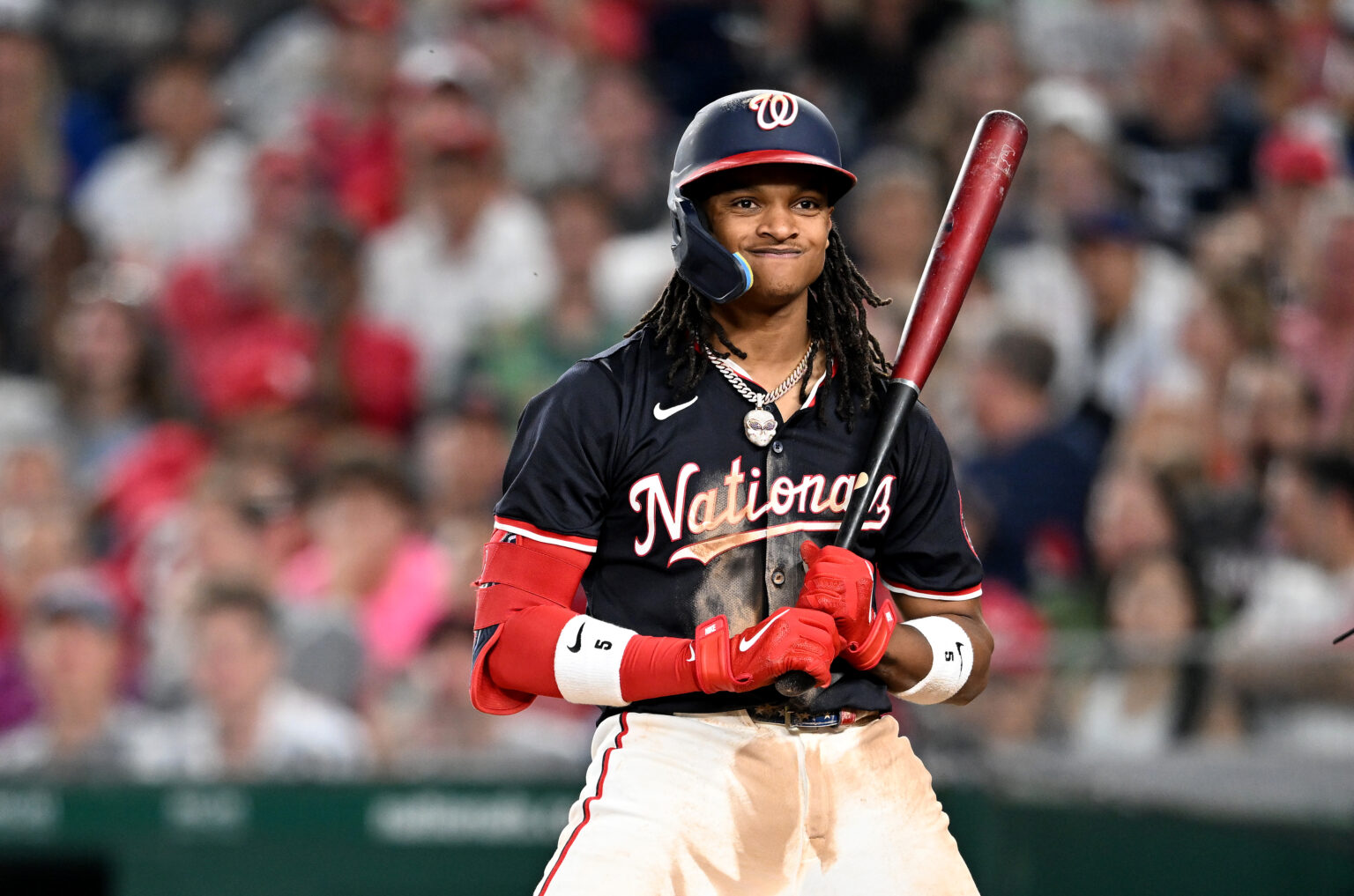Washington Nationals Fall Short Despite Strong Moments in Loss to Chicago Cubs
The Washington Nationals showcased moments of offensive power and defensive effort but ultimately fell short in their 7-1 defeat against the Chicago Cubs on Thursday night. Across all facets of the game-pitching, fielding, hitting, and baserunning-the Nationals struggled to execute consistently, revealing areas that need improvement. The players appeared aware of these shortcomings as the game progressed.
Early Mistakes Set the Tone
The game’s opening inning set the stage for the Nationals’ difficulties. Starting pitcher Jake Irvin left a curveball elevated to Pete Crow-Armstrong, the Cubs’ promising second-year player. Crow-Armstrong responded with a powerful shot to center field, driving in two runs with a home run. This early deficit put Washington on the back foot from the outset.
Base Running and Defensive Lapses
In the bottom of the first, CJ Abrams ignited some offensive momentum with a sharply hit single to right field. He sprinted aggressively to second base, beating Kyle Tucker’s throw, but was ultimately tagged out after sliding headfirst. Similarly, Robert Hassell III attempted to stretch a single into a double in the third but was thrown out trying to advance. These aggressive plays, while spirited, proved costly, especially as the top of Washington’s batting order responded with a double and a single immediately afterward.
Manager Dave Martinez acknowledged the importance of baserunning but emphasized that defensive errors were more detrimental. “Getting thrown out didn’t bother me much-those were good plays and good throws,” he said. “But we need to focus on catching the ball better. That’s fundamental.”
Defensive Struggles and Pitching Challenges
Defensive issues persisted, notably in the second inning when Luis García Jr. was slightly slow to reach what was ruled an infield single for Matt Shaw. Chicago capitalized on this misplay, with Nathaniel Lowe mishandling a throw during a double play attempt, allowing Ian Happ to score and extend the Cubs’ lead to 3-0. The Cubs’ offensive momentum was further fueled by a double from Happ, who drove in another run.
The game’s frustration was palpable in the seventh inning, when García slammed his bat after popping out with runners on base. “I rarely miss fastballs,” García explained through an interpreter, “but I missed two today, which is why I was upset.”
Later that inning, Abrams struggled at the plate, unable to hold back a checked swing with the bases loaded and two outs, reflecting the team’s ongoing offensive struggles in high-pressure situations.
Underlying Issues: Defense, Baserunning, and Pitching
The Nationals’ difficulties are not isolated incidents. In May, their defensive metrics ranked them among the worst in Major League Baseball, according to popular analytics platforms like Outs Above Average. Their tendency to take extra bases has also been flagged as a weakness, often attributed to the youthful roster’s aggressive style of play. Manager Martinez has noted that these aggressive baserunning tactics come with inherent risks but are part of the team’s strategic approach.
Recent Performance and Resilience
Despite these issues, Washington has demonstrated resilience over the past three weeks. Since a team meeting following a May 13 loss-at that point their seventh consecutive defeat-they have posted a solid 12-7 record. Their offensive production and bullpen performance have been above average, and they’ve excelled in clutch situations with runners in scoring position. These strengths have helped offset some of the inconsistencies from their starting pitchers.
Analyzing Irvin’s Performance
Irvin’s outing was a mixed bag. He started strong, striking out a batter on a 95.6 mph fastball-an encouraging sign, as he rarely reaches that velocity. However, his fastball command faltered, often missing to the glove side, and he couldn’t regain his velocity later in the game. When asked about his performance, Irvin admitted, “I couldn’t answer that.”
His most notable mistake was a curveball that Pete Crow-Armstrong hit 412 feet to center field. Although Irvin usually provides length for the Nationals, he was pulled after just five innings, having allowed three runs. Manager Martinez pointed out that Irvin was leaving too many pitches over the heart of the plate, making it easier for the Cubs to make contact.
Irvin’s best start in recent weeks came against the San Francisco Giants on May 24, when he pitched eight scoreless innings. However, his subsequent outings have seen him surrender nine runs on 18 hits across two starts, highlighting inconsistency.
Late-Inning Challenges and Final Score
By the sixth inning, Irvin was trailing 3-0, and the Cubs extended their lead to 5-0 in the following inning. Jackson Rutledge, who entered in relief, faced immediate trouble-allowing a single to Reese McGuire and a two-run homer to Ian Happ, who sent the ball soaring into the upper deck in right field. The game concluded with two more runs in the ninth inning, courtesy of Eduardo Salazar, and an RBI single from García for the Nationals’ lone run.
Positive Takeaways and Player Highlights
Despite the loss, there were bright spots for Washington. Outfielder James Wood launched two hard-hit line drives exceeding 100 mph, though both were caught by the outfielders. Abrams, after struggling at the plate, managed to double in the third inning, showing signs of progress at the plate.
García expressed frustration over missed opportunities, noting, “It’s frustrating to hit the ball hard and still get out.” These moments underscore the ongoing battle to convert quality contact into runs.
Conclusion: A Winnable Series Lost
While the final score favored the Cubs, the game and the series held more promise for the Nationals than the scoreboard suggests. Their offensive potential, combined with moments of defensive brilliance and individual player efforts, indicate that with better execution, they can turn these close games into wins. As they continue to develop and refine their approach, the Nationals aim to translate their resilience into more consistent success in the coming weeks.

